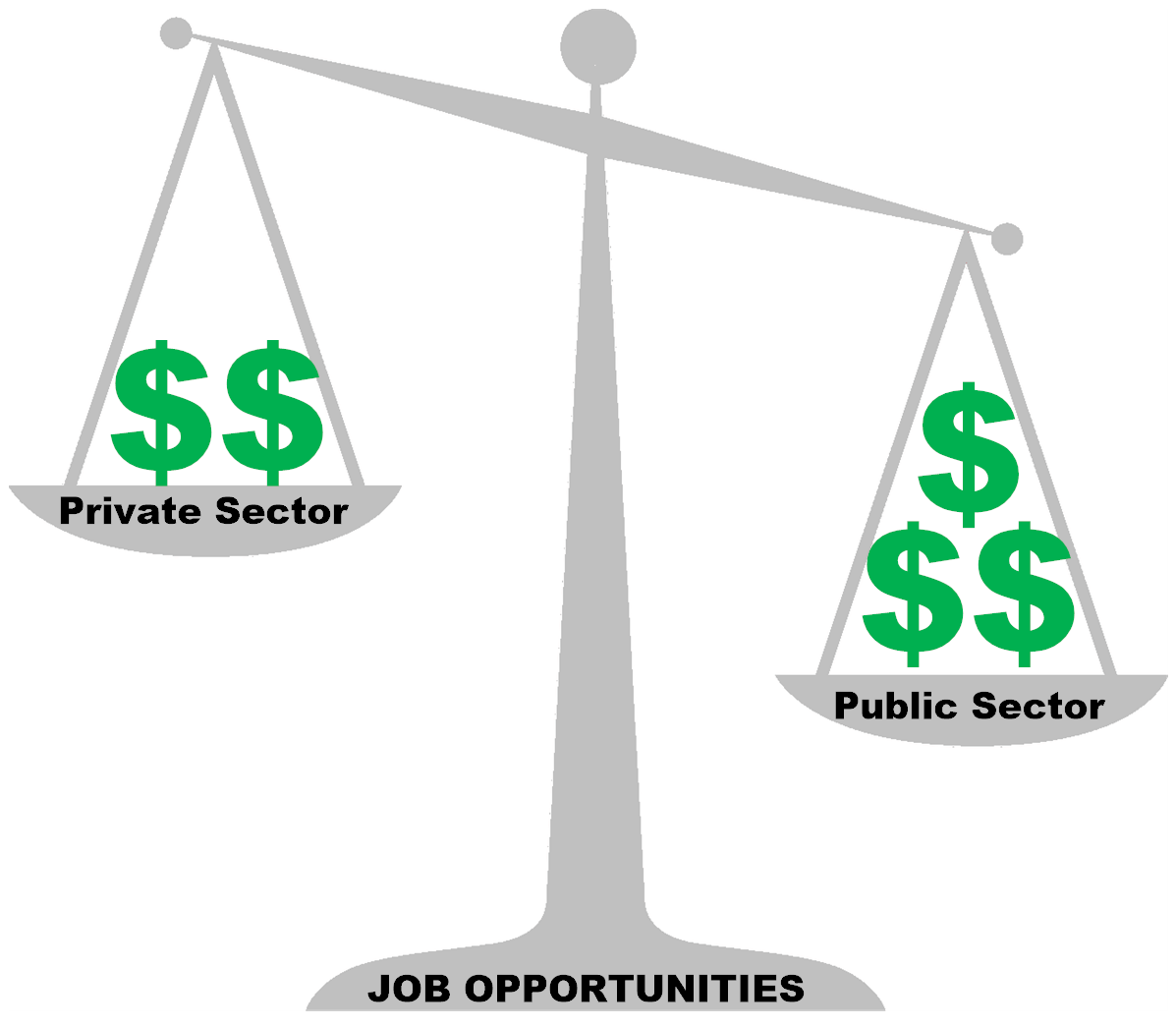There was a time when government workers were stereotyped as somehow inferior to workers found in the private sector. And, in many cases, the compensation was limited by highly-negotiated contracts, and merit was secondary to seniority. However, times have changed, and there is a great deal of disruption in the private sector. Not so much in the public sector. Therefore, new college graduates should consider government service as a prime opportunity.
Let us consider some of the important decision points on evaluating government employment .
Salary – rigidly defined by job and step-wise classes that are often negotiated under union contracts. A minor portion of your pay is likely to be classified as “mandatory” union dues.
Benefits and Retirement – it is hard to find equivalent healthcare benefits within the private sector unless you are an executive or extremely valuable employee, or participate in a stock incentive plan. Most plans in the private sector are “defined contribution,” with or without employer matching funds, that depend on the success of the company. However, in the government, you find defined benefit” programs with a guaranteed outcome. Many of the retirement programs in the private sector rely upon are fully funded, but some may be based on the purchase of dodgy annuities. In the public sector, unfunded pension liabilities are guaranteed by the government and will eventually be paid by the taxpayers.
Job Security – the saying that it is almost impossible to fire a government worker is true. Except for individual criminal acts, it is challenging and complicated to fire an employee for incompetence or even gross negligence. Therefore, government employment offers unparalleled job security.
Promotion – in the private sector, your advancement is limited to your abilities, experience, and accomplishments; or in a single word: merit. In government service, one’s progress is confined to step- and class-promotions that are often the subject of rigid rules and regulations negotiated by unions or the bureaucracy itself. Competence and performance are often secondary to seniority and political connections within the government.
Work Stress – Stress is an individualized response to particular situations. Knowing that not meeting specific performance guidelines in the private sector is almost always more stressful than being faced with a never-ending line of individuals with problems seeking government assistance of some sort. Pretty much why heavily bureaucratic government organizations seem to run at their own pre-determined pace even in the face of increasing demand. Most public sector stress originates from interpersonal conflict with one’s co-workers or supervisors.
Odd Majors – The private sector has little use for those specialized majors in civil rights, gender, or ethnic studies. These very same studies are welcomed into government service in the name of advancing political correctness. Likewise, English, History, and Art majors are accepted because most government job requirements just require a college degree unless you are being hired for a particular function such as engineering, accounting, legal, or a specialized job function that requires specialized knowledge.
Challenge – Unfortunately, superior performance, innovation, and change are somewhat discouraged by union activities lest you make the entire collective group appear to be underperforming.
Bottom line: In today’s challenging times, those who want security over opportunity are well-advised to consider some form of government service, be it at local, state, or federal level. Of course, this should preclude working for individual politicians who may be termed out of office or lose their offices with the very next election.

